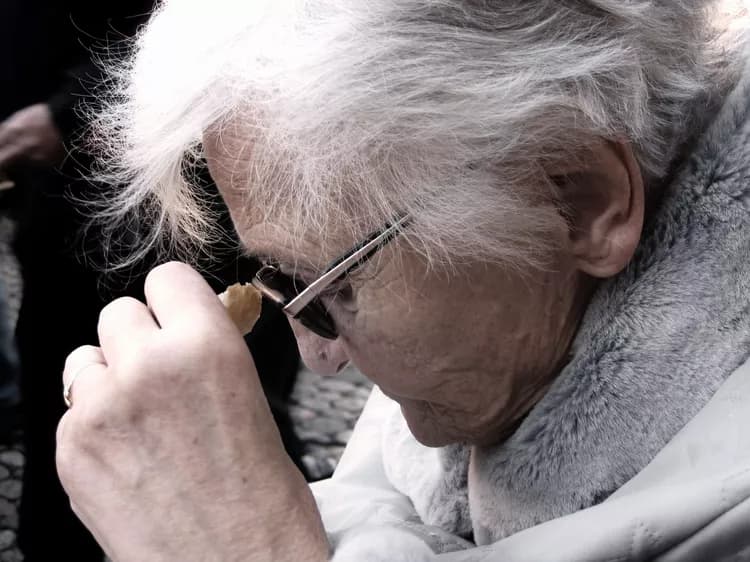
Older Adults With HIV: An Overlooked Population?
When it comes to HIV prevention and treatment, there is a growing population that is being overlooked -- older adults -- and implicit ageism is partially responsible for this neglect, according to a presentation at the 125th Annual Convention of the American Psychological Association.
"The lack of perceived HIV risk in late adulthood among older people themselves, as well as providers and society in general, inhibits investment in education, testing and programmatic responses to address HIV in an aging population," said presenter Mark Brennan-Ing, PhD, director for research and evaluation at ACRIA, a non-profit HIV/AIDS research organization in New York City. "Ageism perpetuates the invisibility of older adults, which renders current medical and social service systems unprepared to respond to the needs of people aging with HIV infection."
There is an enduring misconception that HIV is a disease of the young, and in particular young gay and bisexual men, according to Brennan-Ing, but it is estimated that in developed countries with well-developed health care systems, almost half of all people living with HIV are 50 or older. In some countries, that number is expected to increase to 70 percent by 2020. People 50 and older account for 17 percent of new HIV infections, and are more likely than younger adults to be diagnosed with AIDS at the same time as they discover their HIV status.
Previous research has suggested as many as two-thirds of all older Americans with HIV have experienced stigma due not only to the disease, but to their age. This phenomenon may be even more pronounced among gay and bisexual men, because of an increased obsession with age and internalized ageism within the gay community.
Despite a median age of 58, older Americans with HIV are more likely to exhibit characteristics of people in their 60s, 70s or even 80s, said Brennan-Ing. The combination of stigma due to age, sexual orientation, race/ethnicity, gender identity and expression, and HIV can lead to a number of negative outcomes specific to this population.
"Stigma results in social isolation, either through rejection by social network members or self-protective withdrawal, leading to loneliness and, ultimately, depression," he said. "Stigma also makes people reluctant to disclose their HIV status, which could affect their health care treatment or prevent them taking precautions to reduce transmission."
Older individuals who believe in the negative stereotypes associated with aging can also have poor health outcomes. Negative expectations about aging have been associated with poor cognitive test performance in older individuals and can increase stress, resulting in physical health issues, such as heart disease. More important, if an individual believes that aging leads to inevitable health problems and decline, that person may stop engaging in healthy behaviors, creating a self-fulfilling prophecy.
"These mechanisms may be responsible for empirical findings that internalized ageism is related to both chronic disease and longevity," he said.
While it may not be possible to reduce ageism at the societal level, there are opportunities at the community level for providers of health and human services to buffer or reduce the impact of ageism for those who are infected or at risk for HIV, he said.
Specifically, Brennan-Ing recommended:
- Training health providers in HIV screening, early diagnosis and initiation of antiretroviral therapy in older populations and integration of key services.
- Prevention, education and outreach targeting older adults.
- Treatment guidelines for older individuals with HIV.
- Funding in line with the aging of the epidemic.
- Engagement of communities, community-based organizations and social service providers in outreach, mental health and social support.
- Addressing the needs of special populations.
"With the demographic shift toward older adults in the HIV population globally, and the elusiveness of a cure, addressing the care needs of this aging population are paramount," said Brennan-Ing. "The aging of the HIV epidemic will be very challenging, but provides the opportunity to mount a global response that will address the needs of this population across regions and settings."
Session 2126: "Ageism and Older Adults With HIV: A Source of Health Disparities?" Symposium, Friday, Aug. 4, 10-10:50 a.m. EDT, Room 149A, Street Level, Walter E. Washington Convention Center, 801 Mount Vernon Pl., N.W., Washington, D.C.
Presentations are available from the APA Public Affairs Office.
Contact: Mark Brennan-Ing at mbrennan@acria.org or by phone at (917) 257-3642.
The American Psychological Association, in Washington, D.C., is the largest scientific and professional organization representing psychology in the United States. APA's membership includes nearly 115,700 researchers, educators, clinicians, consultants and students. Through its divisions in 54 subfields of psychology and affiliations with 60 state, territorial and Canadian provincial associations, APA works to advance the creation, communication and application of psychological knowledge to benefit society and improve people's lives.
Materials provided by American Psychological Association. Note: Content may be edited for style and length.
Disclaimer: DoveMed is not responsible for the accuracy of the adapted version of news releases posted to DoveMed by contributing universities and institutions.
Related Articles
Test Your Knowledge
Asked by users
Related Centers
Related Specialties
Related Physicians
Related Procedures
Related Resources
Join DoveHubs
and connect with fellow professionals

0 Comments
Please log in to post a comment.